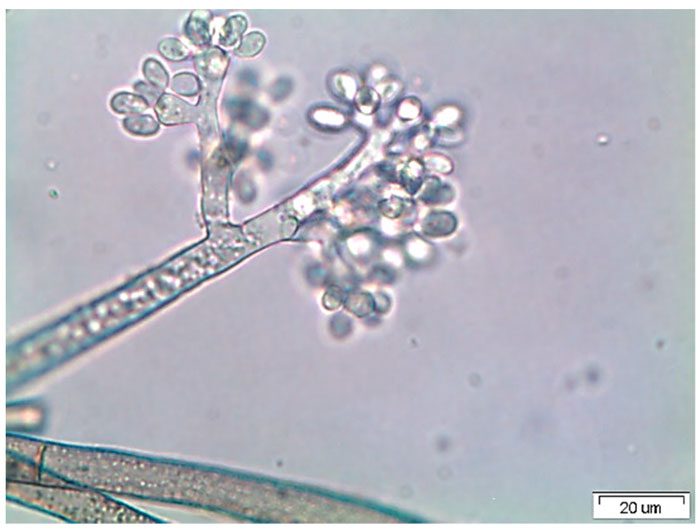According to scientists who discovered it, this compound is called keanumycins because it kills fungi as easily as action heroes played by Reeves take down enemies in films like “The Matrix” and the “John Wick” series.
Following the release of HBO Max’s 2023 television series based on the popular video game “The Last of Us”, which depicts a zombie apocalypse caused by a fungal pandemic, some people wonder if deadly fungi could be the next environmental concern to worry about.
As CNN pointed out, future fungal outbreaks in humans are unlikely to resemble what occurred in “The Last of Us.” However, as the Earth’s climate warms and more fungal strains develop antifungal resistance, fungal diseases in humans will certainly worsen.
According to an article published in Nature Food, in addition to impacts on human health, fungal outbreaks also threaten the world’s food supply.
To address this danger, scientists have discovered an antifungal byproduct from certain bacteria capable of combating both human and plant fungal diseases, as reported by Phys.org.
When naming this new discovery, scientists were inspired by one of Hollywood’s most famous and recognizable action stars: Keanu Reeves, as The Byte noted.

Keanumycins, derived from Pseudomonas bacteria, target a plant pathogenic fungus known as Botrytis cinerea, which causes gray mold disease that devastates crops.
This antifungal compound was discovered by researchers at the Leibniz Institute for Natural Product Research and Infection Biology in Germany.
Their findings were published in a study through the Journal of the American Chemical Society (ACS). This compound, naturally produced by Pseudomonas bacteria, is effective against fungal infections in both plants and humans. Because it is produced entirely naturally, this compound can be considered an environmentally friendly alternative.
Scientists have indicated that this compound is particularly “effective” in combating the Botrytis cinerea fungus, which causes gray mold disease and results in significant annual crop losses.
Previous studies have shown that this gray mold disease can cause considerable damage to annual fruit and vegetable harvests, affecting more than 200 different types of fruits and vegetables, particularly unripe strawberries and grapes.

Botrytis cinerea can spread through the air and infect various plants. It is known to infect over 200 plant species.
Studies have also found that this compound can inhibit the growth of dangerous fungi in humans such as Candida albicans – a yeast that causes oral thrush in humans.
The research indicates that this new compound could be an “environmentally friendly alternative” to chemical pesticides and may also provide a solution in the fight against antifungal-resistant fungi.
Regarding the significance of this discovery, research author Sebastian Götze stated: “We are facing a crisis in antifungal medications… Many fungi that infect humans are now resistant to antifungals — partly because they are used excessively in agriculture.”

Actor Keanu Reeves.
When researchers tested the isolates from the natural product against fungi that infect humans, they found that it “strongly inhibited” the Candida albicans pathogen.
This new antifungal compound is so effective that when it came time to name it, they chose “keanumycin” to honor Keanu Reeves, the action star from the “John Wick” and “The Matrix” film series.
Regarding the decision to name their discovery keanumycin, researcher Sebastian Götze from the Leibniz Institute remarked that the lipopeptide group has dangerous properties against fungi, “so effective that we named them after Keanu Reeves because he is also extremely dangerous in his roles.”
As mentioned, these entirely natural products are biodegradable and safe to use directly on crops. Additionally, Götze added, “we have tested this isolate against various fungi that infect humans”, with encouraging signs that keanumycin may also help combat fungal infections in humans in a timely manner.
According to the Centers for Disease Control and Prevention (CDC), 75,000 people were hospitalized due to fungal infections in 2014, and approximately 7,000 died in 2021 — though the actual numbers may be much higher.
|
Botrytis cinerea can secrete various chemicals, weakening the plant’s defenses and destroying its cells. Each year, Botrytis cinerea costs the world between $10 billion and $100 billion in losses. This fungus is also known to be resistant to many pesticides and other chemicals. However, Botrytis cinerea is typically not a direct threat to your health unless you have asthma or some other respiratory issues, as the condition can be exacerbated by the presence of the fungus in the air. |


















































